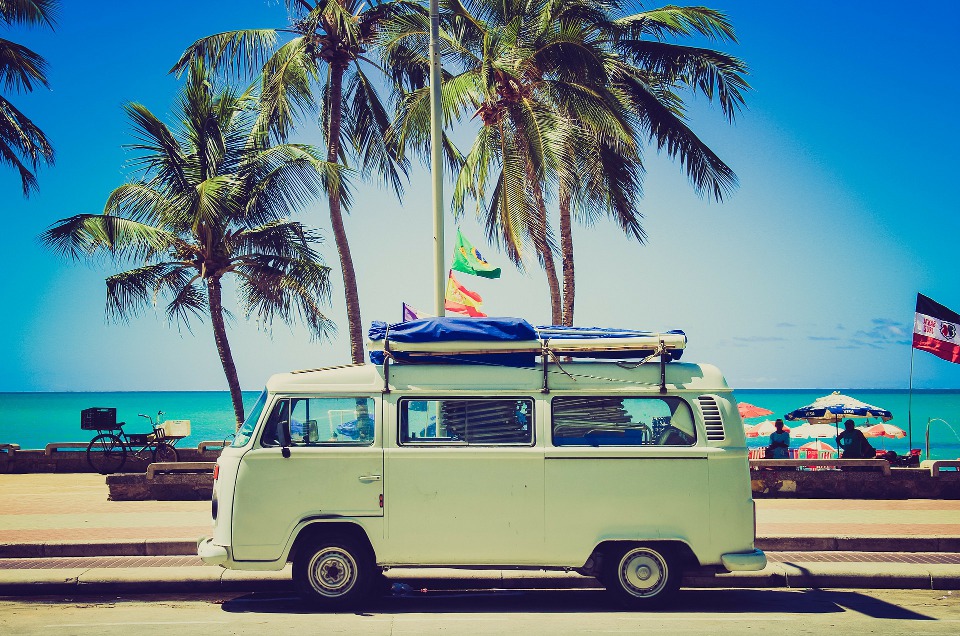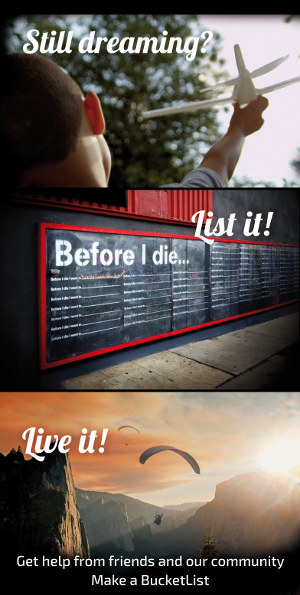
How To Finance Your Dream Trip
Asserting that you’re going to travel once and for all is the first domino which sets everything in motion. As self-helpish as it sounds, the hardest part of travel is simply deciding to. After that, everything falls into place.
Setting a budget is crucial to breaking down the process into manageable bits. Your budget should include plane tickets, food, accommodation, transportation, and recreational expenses. Travel can be as cheap or as expensive as you make it.
To start, ask yourself what sort of trip you want and then search through first hand travel experiences to get an idea of an appropriate budget. Once your budget is set, you can figure out both how long it will take to save for your trip and how long that money will last you. Sites like Budget Your Trip can be of some use, just don’t get dejected if it seems out of your price range — you can always do it for less, trust me (and vice versa, if you’re not careful).
Setting these tiny, tangible mile markers makes the process easier to swallow — that’s where the BucketList community comes in. Share your trip, the sub-goals that go with it, and keep yourself accountable.
Obviously, the less money you need to travel, the sooner you can go —so finding the best deal is in your best interest. Once your budget is set, you can move on to working money magic.
Normally, your largest expense is going to be your plane ticket; if you can manage to take a good chunk out of this, that dream trip gets pushed that much closer to becoming reality.
To begin with, when shopping for plane tickets, always be searching in a hidden browser (i.e. Incognito Mode in Google Chrome). Websites will save the cookies from repeated queries and will start to raise prices so as to force you into making a rushed decision.
To travel hack a ticket you need to make use of at least one of the following three:
Time in advance
It’s commonsensical but readily forgotten — the longer you wait to buy your plane ticket, the more the cost will rise. The moment you set your budget and have your calendar made, buy the ticket. If you don’t have the money quite yet and have the option to borrow it from a friend or family members, do it. It could save you a pretty penny.
Flexibility
Flexibility is both being free to take your trip at any time during the year and also not being set on a specific destination or amount of time. This won’t gel with most lifestyles, but for those lucky enough to play things by ear, some remarkable deals can be had.
Sites like JetRadar, Holiday Pirates, and Guia Low Cost (Spanish) find some unbeatable offers. Even if a trip isn’t on your immediate horizon, signing up for a newsletter can keep you in the loop for when the time comes.
Elbow grease
If I had a dollar for every time I’ve heard someone complain that X part of travel is too expensive after only looking at one or two sites… I might be able to fund an entire trip for myself. If you want to save money, you’re going to have to put the time in, it’s that simple.
Detours can save you loads. An example: about a month ago, I was looking for tickets from Thailand to Spain. Seeing that I didn’t buy tickets far enough in advance (I’m human too), the prices were high. Bangkok to Madrid for $450? Yikes. After playing around with the searches a bit more: Bangkok → Kuala Lumpur → Ho Chi Minh → Paris → Madrid. Final cost? $350. A bit longer, sure, but certainly worth it.
Use flexible flight tools to check the cheapest dates and flights to ‘anywhere’ for the cheapest points of departure and arrival. Take the long way home. Once you get a taste for savings, it rarely stops there. There’s a growing amount of people that are traveling the world on pittance by gaming the system.
Jakarta to San Francisco for $42.50? A night in a 5-star hotel for $8?
Your eyes don’t deceive you. While it may not be for everyone, flight hacking with credit cards can offer you some pretty ridiculous savings and so long as you’re careful won’t put the slightest dent in your credit.
Now, all this is great, but there’s still money to be saved.
The name of the game is spending
How much you spend defines how much you save. How much you make a year is all smoke and mirrors — you can be making six figures and not be able to afford to travel because instead you chose to buy a BMW — what matters is how much you save. Small minds overlook the importance of small expenses.
Spending comes down to decision-making, valuing a product or experience now versus a product or experience in the future. It’s a mindset; the reason some people have great issue with cutting expenses down is that they struggle to adopt it.
Now, even the best of us face temptations or moments of weakness; with a little foresight, you can stop yourself from making unnecessary purchases:
-
Never have more money accessible than you really need. This isn’t just referring to cash in your wallet but also to funds on your debit card - make a savings account that isn’t linked to any of your cards and habitually transfer money left over from mandatory expenses. Once that money’s in the savings account, pretend it doesn’t exist anymore.
-
When in doubt over a potential purchase, see if it passes the ‘future abroad currency’ test. Namely, convert its value into what it could buy you during your trip:
- $3 coffee from Starbucks = one night’s stay at a hostel in Cambodia.
- $7 burrito from Chipotle = almost six Pad Thai meals in Thailand, enough food for two days.
- $35 for dinner and a movie = An entire day in Romana.
- $100 pair of shoes = Entrance fee to Machu Picchu
You’ll find that it becomes much more difficult to justify getting coffee everyday when it equates to a month’s accommodation abroad in your head.
When faced with all the resources available, few excuses stand up to how attainable your dream trip really is. You’ll find that what separates those who travel and those who don’t is simply a subtle shift in priorities. Remember that small expenses add up, that flexibility pays off, and that there are better deals out there — it just takes time. So establish your dream trip, budget it out, and break it down — BucketList is here to help you help yourself. Stop imagining and start doing.








Comments